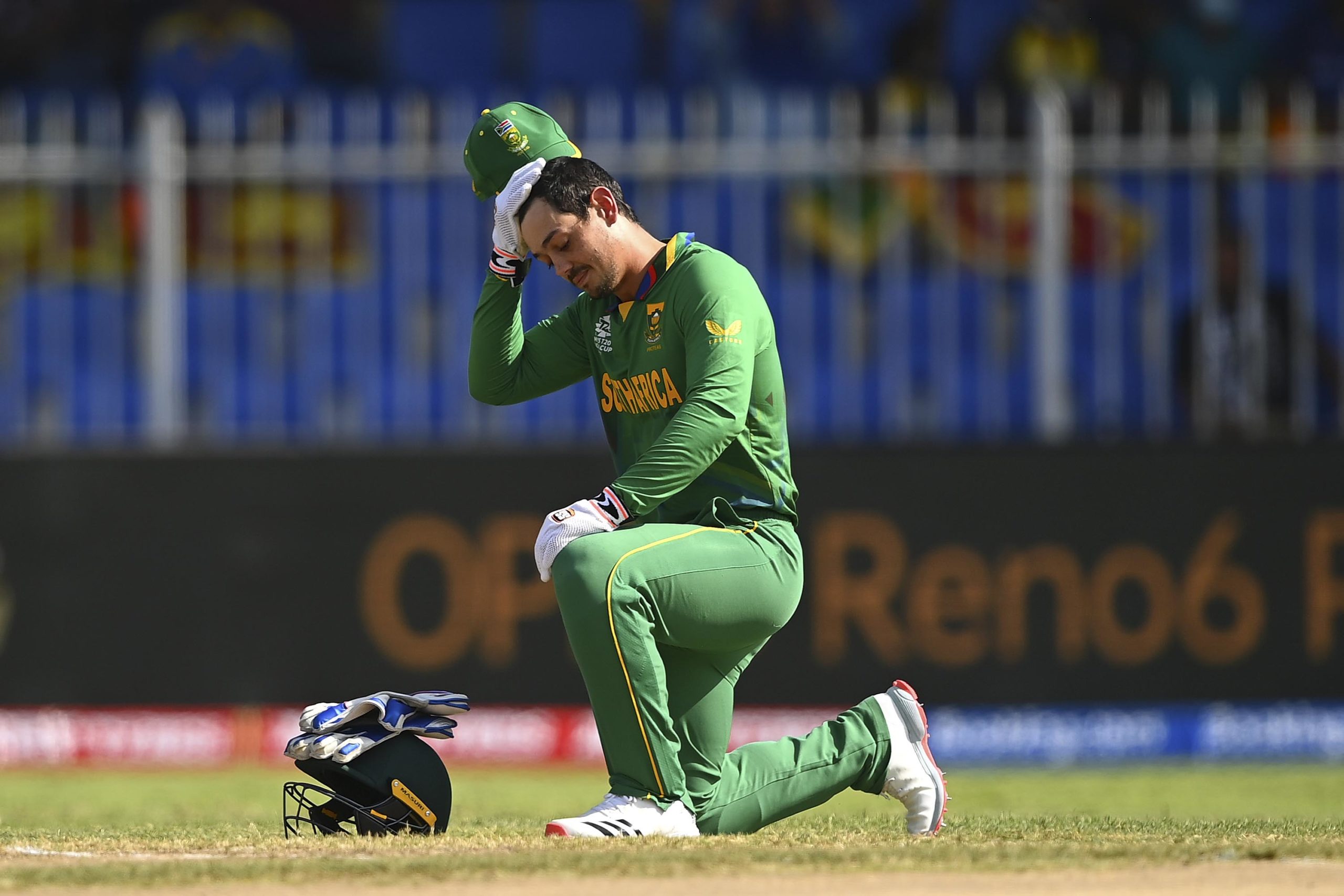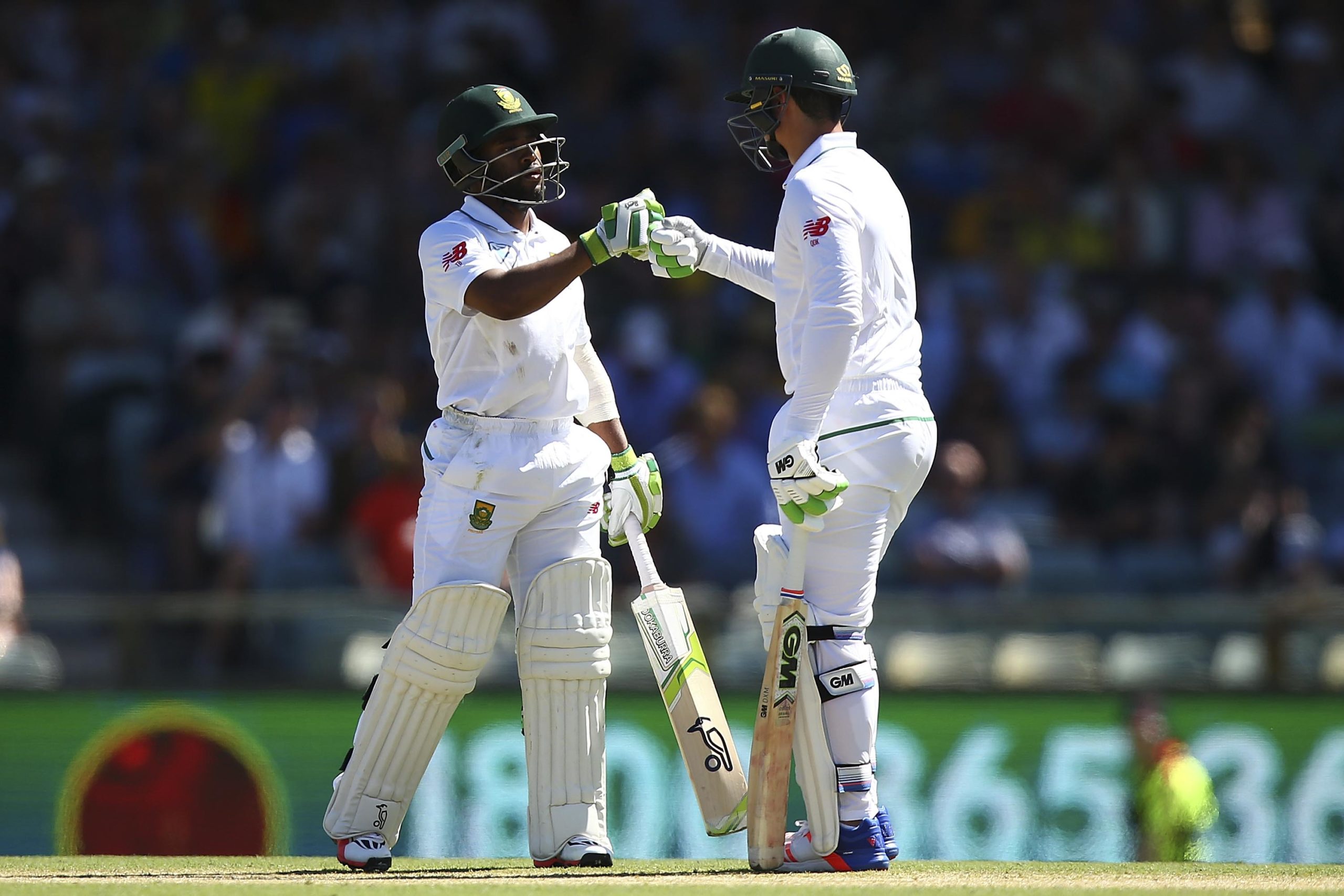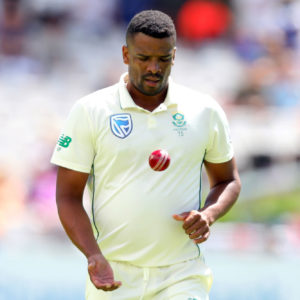South African cricket needs a good hard look
Quinton de Kock declining to take the knee at a time when cricket’s racial injustices were being laid bare spoke volumes about the enormous amount of work needed to rid the sport of its rot.
Author:
6 November 2021

A common theme to emerge from the Social Justice and National Building (SJN) hearings that Cricket South Africa (CSA) held in recent months has been the distinct lack of trust that has eroded much of the game. This was among the many difficult truths to come out of the hearings.
When anyone walks away from cricket, be it player, coach or administrator, there is usually a bitter aftertaste. Hurt – perceived or apparent – and animosity towards the organisation, a superior or a colleague, or a combination of these, is common.
Cricket’s stock has been low for a long time now. It is not a particularly good wicket to be on, nor a sustainable one. The sport has lurched from one drama to the next and the latest fiasco, involving a last-minute directive from CSA for all players to take the knee, a petulant reaction from Quinton de Kock and the subsequent storm on social media, perfectly summed up South African cricket’s imperfections. The fact that it came after a poor showing in a World Cup match made it eerily familiar.
In the midst of injustice hearings and under the microscope, a casual observer could easily jump to the conclusion that De Kock not playing in South Africa’s T20 World Cup match against the West Indies, as a result of a direct order, means he doesn’t care about standing – or kneeling – against racism. Or, as swathes of social media users assumed, he must be racist.
Related article:
CSA could have managed the narrative sensitively by taking a leaf from the diplomacy playbook of the increasingly impressive captain, Temba Bavuma. He left the door open to an internal clean-up when he said De Kock was missing the match for personal reasons. But CSA removed any ambiguity by saying that De Kock had refused to take the knee.
For his part, De Kock needs to consider his role and responsibility as a Protea. He lives in a country still recovering from a brutal and unjust past, and he is a beacon of inspiration for kids around the world. At the age of 28 and about to become a father, there is a responsibility on his shoulders, however reluctantly he accepts it.
That he had his captain batting so strongly for him, publicly and privately, highlights the wider consequence of his actions, or non-actions. Bavuma is having to defend himself at every turn at the moment, with his ability being questioned, his credentials being verified and every decision he makes as the new captain analysed to infinity. And yet amid all this, he weighed in on behalf of a player he knows better than anyone who cast judgement on the issue.
Perhaps some day cricket will be in the hands of characters as resolute and reasonable as Bavuma.
Then again, an organisation that cares about how functional it looks would have not have sought the public moral high ground over a player ambushed with a directive on his way to a match. But CSA has been dysfunctional for a long time.
Reality check
Personal point-scoring has been a trend for a few years. That the players stood united for De Kock in the meeting that followed the West Indies game would have startled some of the latest CSA board members. They should have read the room long before putting De Kock on the defensive on Tuesday 26 October.
Players are only human. They get hurt and lash out when they feel cornered or betrayed. But not one member of the T20 World Cup squad doubted De Kock’s commitment to the Proteas’ anti-racism stance. That was made crystal clear to the board, and the public through the media after the fiasco.
It ought to be a prerequisite to know your employees better before imposing your whims on them, but the problems are many within CSA’s walls. It has lost sight of the bigger picture and increasingly alienated the public with the perception that South African cricket is anything but a team at the moment – it’s every man or woman for themselves.
It’s difficult to find a good story to tell right now. For a game that preaches inclusivity as one of its cornerstones, the past few months of testimony, rebuttal and mitigation will have been a reality check.
The tales of inadequate salaries and basic conditions for young Black players – to which some cricket unions have admitted – have been harrowing. And despite all her critics, of which this writer has been one, former CSA director Eugenia Kula-Ameyaw’s insistence that the SJN hearings had to happen was clearly well-founded. They have allowed buried resentments and pain to be articulated.

Former team manager Mohammed Moosajee provided some uncomfortable realities about the opportunities that the quota system created for those who wanted to abuse it, on both sides of the fence. One can only wonder how this recent De Kock saga might have played out if he was still at the helm. But the transfer of skills, soft and hard, has often been missing when long-serving employees have left in recent years.
Some lazily labelled Moosajee as being part of a Muslim cabal, so his exit was deemed necessary and inevitable, regardless of his qualities. But ask any player if he brought value and wisdom to the team, home and abroad, and the answer is revealing. He went above and beyond for them because, in his mind, the team operated best when there were no sideshows to distract them.
Jacques Faul, acting chief executive of CSA at a time when many saw cricket “going back into white hands”, conceded that he and others in power should have been more aware and taken a look at the optics that they were presenting. The past can never be undone, but it can inform those who follow so they take a better path. An inclusive path.
The right environment
Cricket can no longer operate within carefully crafted factions of control. A look at the current men’s and women’s teams illustrates the possibilities that exist when players enter an environment in which they are welcomed and encouraged to shine – and be themselves.
CSA is desperate to win again, because that is seen as the quick solution. But before cricket and its multifaceted fan base concerns itself with winning, trust has to be rebuilt within its walls.
Jamaican former cricketer-turned-commentator Michael Holding was rightly given the final say at the SJN hearings. He revealed the intimate conversations he has had over the years with Makhaya Ntini. He has also been a mentor to Kagiso Rabada in recent years. That greater trust developed between two of South Africa’s finest talents and Holding, who only spends a few months at a time in this country, rather than a local leader of the game shows how significant the missing link in the chain is.
There are little to no personal relationships between the business and the faces of the operation, the players. This has to change, or at least improve. Cricket in South Africa needs all the friends and favour it can get. It still walks a financial tightrope, and relies on individuals rather than drawing on the wealth of talent in the country to make cricket a collective effort. CSA needs to remember its manners, its ubuntu, especially when ending chapters and careers.
Related article:
Recall the hollow goodbyes granted to stellar contributors in better days. Imagine being Imran Tahir, who has given so much to this country. There wasn’t a phone call to say thank you, but we don’t need you anymore. Imagine being Faf du Plessis, a captain across formats for years, sometimes of a team in rapid decline, and seeing your name left out of a congratulatory tweet about a match you starred in.
Or, infinitely worse, being a Black face put into a white changing room or office and told to get on with it, for the sake of public perceptions. Imagine being Lungisani Ngidi and having your life pulled apart by former players who wore the same shirt, purely because you answered a question about the Black Lives Matter movement. You should count yourself lucky that you went to a good school and not wade into political conversations, even as your very selection is politicised at every opportunity by those who see fit.
Imagine trying to play cricket in an environment like this, a potential minefield of misunderstanding. No one dares to have an opinion or a personality. That is not cricket. No one wins, and it is the leadership who create this environment.
Running or serving the game, especially in South Africa, has to be a calling.


